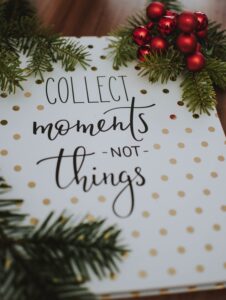As a Psychologist of African and Caribbean descent, it was an honor to speak on the topic of Black Wellness and Mental Health at a recent corporate wellness event during Black History Month.
I’ve been doing mental health work for over 20 years and as a profession we’ve been tackling the issue of stigma in the Black community for some time. What I encounter day in and day out are Black folks’ fears associated with being seen as “crazy.” What I have found helpful over the years is to encourage Black folks to not necessarily focus on themselves as the source of “craziness,”rather, most agree that we are living in a “crazy” world, a world for instance where people who look like me/us are disproportionately targeted and killed at the hands of law enforcement or a world where there seems to be a growing divides across racial, political and social lines. These experiences significantly impact our wellness!
Shining the spotlight on the impact of racial trauma is important to understanding Black wellness. Racial trauma is experienced directly through life-threatening acts, vicariously through social media/the news, and routinely through microaggressions.
The Black community continues to learn of high-profile cases of suicide. We’ve recently learned of the suicides of actor Regina King’s son, Ian Alexander Jr. and Miss USA 2019 Cheslie Kryst. These high-profile deaths, highlight the notion of high-functioning depression. This reflects the idea that the signs and symptoms of depression and suicide may look different in the Black community. Many may be wearing “masks,” preventing others from seeing the pain and anguish they are feeling. Suicide in the Black community is one that we as a community need to continue to sound the alarm on.
I offer these strategies for Black Wellness on an individual and organizational level. We need to continue to dialogue and support one another to further end the silence and to create opportunities to heal:
Individual Strategies:
- Continue to break the silence and dialogue about wellness and mental health in the Black community;
- Name the social, environmental, historical and other root causes of mental health and wellness;
- Understand how exposure to racial trauma impacts health and wellness;
- Develop your own wellness plan (exercise, hobbies, spirituality, social connection, mental health therapy, meditation, cultural forms of healing…)
Organizational Strategies:
- Recognize and center the Black community, Black employees and Black voices in creating workplace wellness initiatives;
- Leadership normalize the topic of mental health and wellness, modeling for teams that “it’s ok to not be ok”;
- Openly and regularly discuss and share organizational wellness resources;
- Encourage affinity spaces and networks where Black employees can gather, connect and support one another;
- Examine the systems and organizational factors that contribute to Black wellness (recruitment, retention, and promotion practices for instance)
Tapping into our resilience, wisdom, and strength as a people is also crucial.
Lastly, sharing ancestor Audre Lorde’s wise words that always motivate and inspire the commitment to wellness!
“Caring for myself is not self indulgence. It is self preservation, and that is an act of political warfare.”
Audre Lorde





